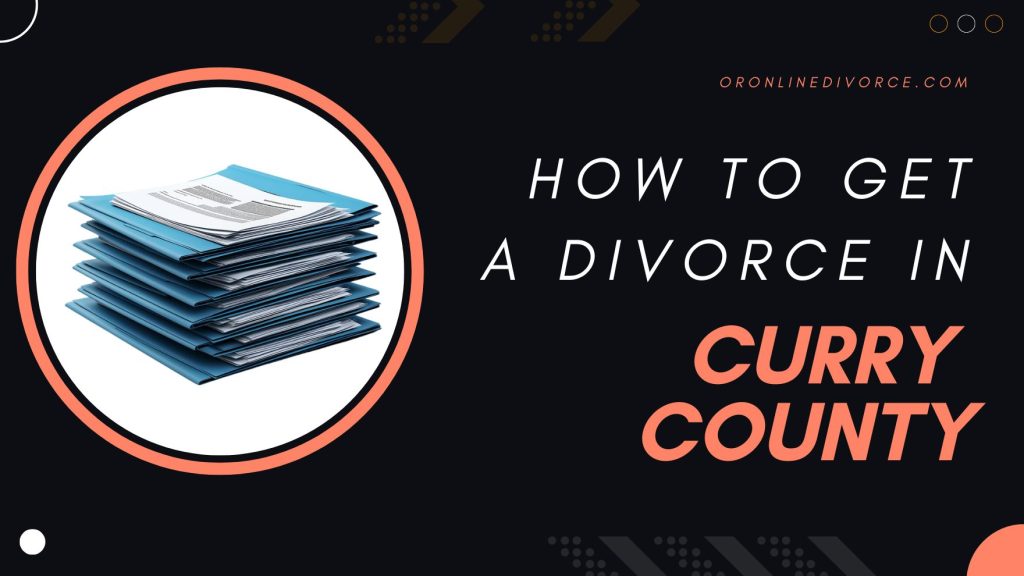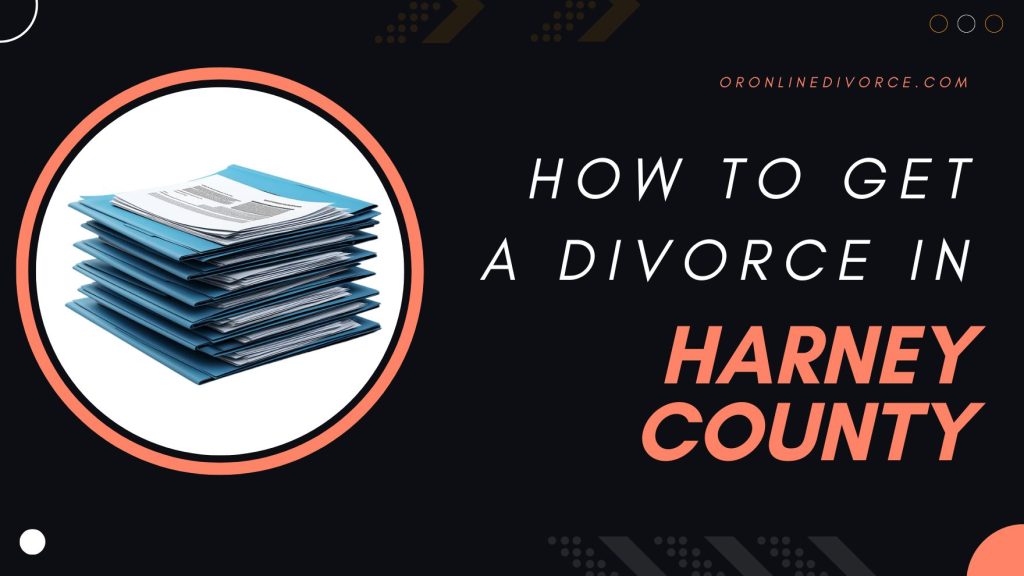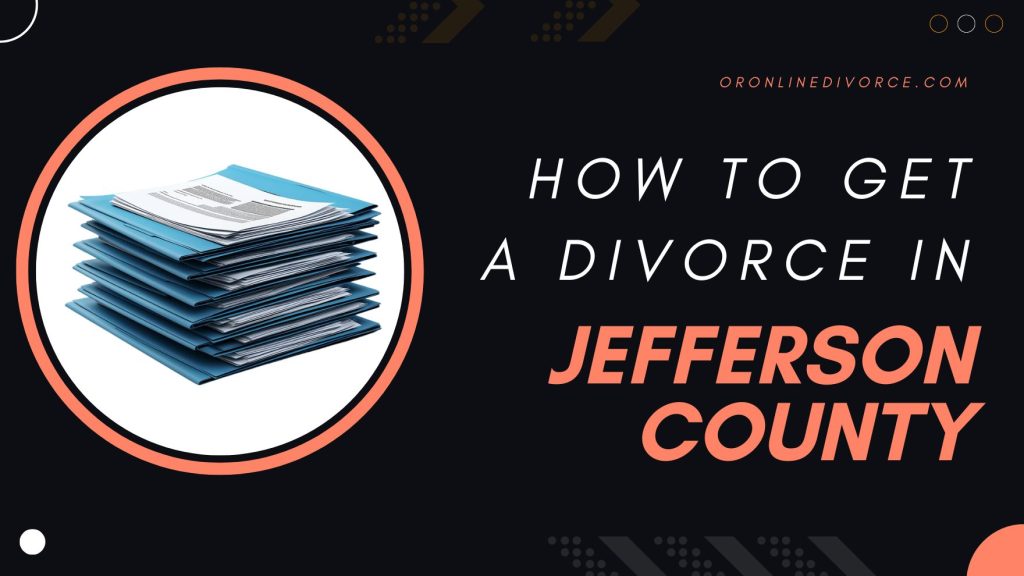If you are going to start a Curry County divorce without a lawyer’s assistance, you probably have many questions about the amount of paperwork, timeframes, where to file, etc. The information provided below will help you navigate the divorce process with less stress.
Table of Contents
ToggleSteps for Filing a Divorce in Curry County
You need to follow several steps to initiate the divorce process and go through it successfully.
1. Make Sure You Meet Residency Requirements
To start a divorce, you must first check if you meet the state residency requirements. You or your spouse must have been a state resident for no less than six months before filing.
2. Fill Out the Needed Divorce Forms
You can go to the local court to check if you can get the forms required there or search for them online. Typically, you have to specify in the forms your personal details, information about your marriage, child-related data, financial information, etc. If you choose a completely DIY divorce, you’ll have to look for and manage all those papers on your own, which can be quite a complicated process that takes days or even weeks.
That’s why many divorcing couples choose to delegate Curry County divorce paperwork to online services. In this case, you need to complete an online questionnaire, and a system will generate case-specific divorce forms. It is a quick and efficient solution for couples who start an uncontested divorce and would like to avoid high lawyer’s fees but cannot cope with the paperwork on their own.
3. Submit Your Forms and Pay a Filing Fee
Once your divorce documents are ready, file them with the local circuit court. The filing fee is approximately $300. If you experience financial troubles and can prove that, it is possible to apply for a fee waiver.
Also, do not forget to make copies of documents to keep with you and serve on your spouse.

4. Serve the Documents
You can give documents to your spouse on your own in case they agree to sign Acceptance of Service. Otherwise, you need to contact someone over 18 years old who is not involved in the case and ask them to deliver the papers or hire a professional process server or a local sheriff; you will need to pay fees for their services. Documents can be hand-delivered to your spouse or sent by certified mail, with return receipt requested.
Remember that a person who serves the papers must complete a Proof of Service form, which should be filed with the court.
5. Wait for the Defendant’s Response
According to the state law, a respondent has 30 days from the moment they receive divorce documents to prepare and submit an answer.
If a defendant fails to respond within this time period, the court can proceed with the divorce without their involvement and grant a default judgment after a petitioner requests an Order of Default. The court decisions will be based on the divorce conditions and terms specified in the initial petition.
6. Attend Court Hearing if Necessary
If spouses apply for an uncontested divorce, it can be finalized without court hearings, given the decisions made by spouses are fair and reasonable and the judge approves them.
If the judge finds a settlement unfair or incomplete, spouses must appear in court, and each of them must present evidence to support their position.
7. Get the Final Judgment
Once all matters are settled, the judge will sign the General Judgment of Dissolution of Marriage, a document that officially ends your marriage.
These are some general steps a divorce process may require in simple, uncontested cases. If there are many disputes to be resolved and spouses can’t do that themselves, their divorce will likely take more time and steps to finalize.
What Curry County Papers Do I Need to File for Divorce
You need to complete and file the following Curry County divorce forms, among others:
- Petition for Dissolution of Marriage
- Summons
- Confidential Information Form (CIF)
- Notice of CIF Filing
- Record of Dissolution of Marriage, Annulment or Registered Domestic Partnership
The list is not final and will include additional forms, depending on your case. If you have minor children, the divorce kit to prepare should also contain forms related to child support calculations, parenting plan, parenting class completion, etc.
Where to File for Divorce in Curry County
There are several Curry County courthouses where the divorce process can be started. Check the information on their location below.
| Court Name | Court Address | Working Hours | Phone Number |
|---|---|---|---|
| Circuit Court | 29821 Ellensburg Ave, Gold Beach, OR 97444 | Monday-Friday: 9:00 AM – 12:00 PM, 1:00 PM – 5:00 PM | (541) 247-4511 |
| Family Court | 29821 Ellensburg Ave, Gold Beach, OR 97444 | Monday-Friday: 9:00 AM – 12:00 PM, 1:00 PM – 5:00 PM | (541) 247-4511 |
| Justice Court – Gold Beach | 29821 Ellensburg Ave, Gold Beach, OR 97444 | Monday-Friday: 9:00 AM – 12:00 PM, 1:00 PM – 5:00 PM | (541) 247-4511 |
| Justice Court – Port Orford | 800 Oregon St, Port Orford, OR 97465 | Monday-Thursday: 9:00 AM – 12:00 PM, 1:00 PM – 4:00 PM Friday: 9:00 AM – 12:00 PM | (541) 332-4024 |
Divorce Attorney in Curry County vs Online Divorce
It is very convenient to have an experienced lawyer taking care of your divorce matters, but hiring such an expert can greatly affect your budget. If you have no disputes to resolve in court, and the entire divorce process requires just preparing and submitting documents, you can avoid divorce lawyers’ costs. Instead, it may be convenient to order a whole package of divorce forms from a reliable online service.
With our help, you can cut down overall divorce expenses to a court filing fee for divorce and a moderate price for preparing your documents online. Another advantage is a short turnaround time. Besides, all our clients receive detailed filing instructions and a full set of forms for their uncontested divorce.


Natalie Martinez is a distinguished author with a profound expertise in family law. Her literary journey spans over a decade, during which she has penned several influential books dealing with the complexities of divorce-related legal matters. Recognized for her invaluable insights, Natalie’s work has garnered acclaim from renowned legal publications. She has been a featured guest on podcasts and webinars, sharing her profound knowledge and passion for family law.



